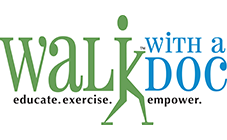Coronary Artery Disease (CAD)
Good morning! There are several myths surrounding CAD.
I love myths.
One big one is that stents prevent heart attacks in patients suffering from stable angina – they don’t. Another is that pigeons blow up if they eat uncooked rice.
Back to stents, they don’t prevent Jack Squat. Actually, they likely prevent you paying your hospital bills on time bc they’re so expensive (cost of stent procedure and hospital stay usually lands between 30-50k). We’ve known definitively since 2007 that medicines (listed below) are as effective as stents. Even drug eluting stents.
There is a big exception. If you are having any concerning symptoms at home, always call 9-1-1 as this could be an acute coronary syndrome, or ACS. In that scenario, stents can absolutely abort a heart attack and save your life.
Other than that, they may take care of chest pain, and right now, the data shows that that’s pretty much it. They don’t prevent death, heart attack, gout or anything else any better than medicines. Those medicines are aspirin, beta blockers (second string blood pressure meds but great heart meds), ACE inhibitors, and statins. And please, please, please know how important a healthy diet and physical activity is in preventing heart disease.
So, if I get a stent I don’t need the medicines?
Nope, you need ’em.
So why are so many doctors putting in stents? 500k are put in each year.
What is a heart attack (also called MI or myocardial infarction)?
This is when one of the arteries (aka coronaries) that sit on top of the heart has a plaque rupture or a clot develop that stops blood flow (and oxygen) to the heart muscle. A lot of times people feel chest tightness, heaviness, pain, or a whole litany of other things (arm, back, neck, jaw, etc.). One quarter of the time heart attacks are silent. There are many times that a new patient is referred to our office 3 years after the “event” and has NO idea. That’s not their fault.
How do you know they had one?
Usually by an echo, nuclear stress test or other imaging modality. Sometimes EKGs, but as a whole, patients give EKGs a lot more credit than they deserve. It’s a 10 second strip of electricity that, yes, has the potential to show us very helpful information. It also has the potential to show us a bunch of normal variants that can understandably get us, as patients, worked up when there may be no significant underlying disease.
What causes heart attacks?
There are known risk factors. An easy mnemonic is A, B, C, D’s
Age – as we get older our risk factors accumulate and CAD becomes more common.
Blood pressure – we will discuss in detail at a later date. Shoot for 120/80 or less.
Cholesterol (this counts for 2) – LDL and HDL. Please know your numbers.
Diabetes – please make sure you have a general idea about your blood glucose and/or hemoglobin A1c.
Smoking – Tobacco Abuse (any amount is abuse to your heart, your other organs, and others). I’ve seen lots of lung/heart disease from second hand smoke.
Sedentary lifestyle – This study (2 weeks ago) came to the conclusion thatCardiorespiratory fitness is a modifiable indicator of long-term mortality, and health care professionals should encourage patients to achieve and maintain high levels of fitness.
Those are the BIG risk factors. There are others that contribute as well (secondary RF’s):
Obesity
Abdominal obesity
Triglycerides
Family history of premature CAD
Psychosocial stressors
Many ask if stress causes heart attacks? Sure. I guess. You know, not in itself but it contributes to a lot of the majors and minors, and so many patients have asked me that it has to make you wonder. There is also a theory out there that MI’s are caused by inflammation, and stress does increase cortisol levels.
There is a lot of stress going around, that’s for sure. In an upcoming newsletter, we are going to address the most effective stress relievers. I’d do it now, but my friends really don’t like long newsletters. Speaking of which…

